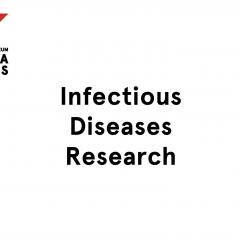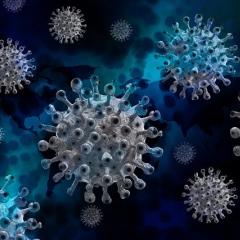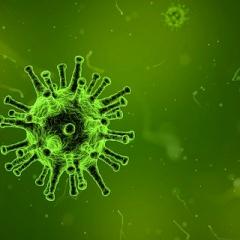Since being established in March 2011, the Australian Infectious Diseases Research Centre (AID) has been successful in securing more than $16 million in Australian research grants.
In the current funding round, AID researchers were awarded National Health and Medical Research Council (NHMRC) project grants totalling $10,177,341 and Australian Research Council (ARC) grants totalling $6,352,000.
The grant funds will be used by researchers to develop new diagnostics and improve disease management, and to generate new therapies for infectious diseases which globally cause more deaths than cancer and heart disease combined.
AID links molecular microbiological and clinical expertise across The University of Queensland’s Faculties of Science and Health Sciences, and interconnects The University of Queensland Centre for Clinical Research, Queensland Children’s Medical Research Institute, the Institute for Molecular Biosciences, the Australian Institute for Bioengineering and Nanotechnology and Diamantina Institute for Cancer, Immunology and Metabolic Medicine through collaboration and technology sharing.
On the establishment of AID earlier this year, Deputy Vice-Chancellor (Research), Professor Max Lu, said “AID will deliver to The University of Queensland a world-class centre with capacity to undertake research on human infectious agents.”
AID is expanding collaborative networks across UQ infectious disease research utilising cell biology, nanotechnology, protein biochemistry, molecular and structural biology expertise.
“AID's growing capacity and network of collaborators will underpin discoveries and innovation that would underpin translational outcomes benefiting the Australian health system and economy.”
In addition to the impressive research funds awarded to AID, members of the Centre have been recognised in 2011 for their contribution to infectious disease research.
“The achievements of our individual researchers are an indication of the high calibre of AID members and points to impressive future outcomes from their research which will have far-reaching effects for human and animal health globally,” said Professor Lu.
AID researcher achievements for 2011
- AID researchers awarded fellowships in the current funding round include Professor David Fairlie (NHMRC Senior Principal Research Fellow); Professor Phil Hugenholtz (Discovery Outstanding Researcher Award); Dr. Benjamin Schulz (NHMRC Career Development Award); Dr. Andrew Hollands (NHMRC Early Career Research Grant); and Dr. Stephen Lambert (NHMRC ECR). These fellowships provide funding and support to enable outstanding researchers to continue to work towards outstanding outcomes.
- AID Director, Professor Mark Walker, delivered the plenary oration at the 2011 BacPath Conference which is an honour awarded in recognition of his research group’s outstanding contribution to the area of bacterial pathogenesis research on group A streptococci. “It was a fantastic honour to be chosen by my peers. It is also testament to the dedication and perseverance of my research group and collaborators that our research on group A streptococci has been recognized in this way”, Prof Walker said.
- AID Deputy Director, Professor Mark Schembri, received the Frank Fenner Research Award at the Australian Society for Microbiology conference held in Hobart. The award recognizes the achievements of Professor Schembri’s research group over the last decade, in particular with respect to the molecular characterisation of pathogenic bacteria such as Escherichia coli that cause infection of the urinary tract. Prof Schembri said “Frank Fenner was one of Australia’s greatest scientists and his work had a monumental impact on the health and wellbeing of the nation. It was therefore an honour to receive this prestigious award. The award recognizes the achievements of my research group over the last decade, in particular with respect to the molecular characterisation of pathogenic bacteria such as Escherichia coli that cause infection of the urinary tract.”
- AID researcher, Professor Paul Young has been elected President of the Australian Society for Microbiology, Australia's largest and most prestigious microbiological society which brings together researchers, clinicians, and industry professionals. Prof. Young said “I am deeply honoured to have been entrusted with leadership of the Australian Society for Microbiology over the next two years. ASM is not only a Society of students, academics and working professionals but also plays a very important role as an advocacy group for our discipline with governments, industry and the wider community. I look forward to continuing the great work of my predecessors in helping to provide an effective forum for cross-disciplinary exchange and to advance a broader awareness of microbiology in Australia.”
- AID sponsored the inaugural Eureka Prize for Infectious Diseases Research which was awarded to Professor Alan Cowman and his team from the Walter and Eliza Hall Institute for their outstanding research on malaria. Professor Cowman is one of the preeminent scientists in the country, and is a world leader on understanding malaria in an effort to provide a cure to the global population. AID will host Professor Cowman in March 2012 when he will present his finding to the UQ research community.
A pledge to AID goes directly into the research of issues that impact the lives of many people and their families.



